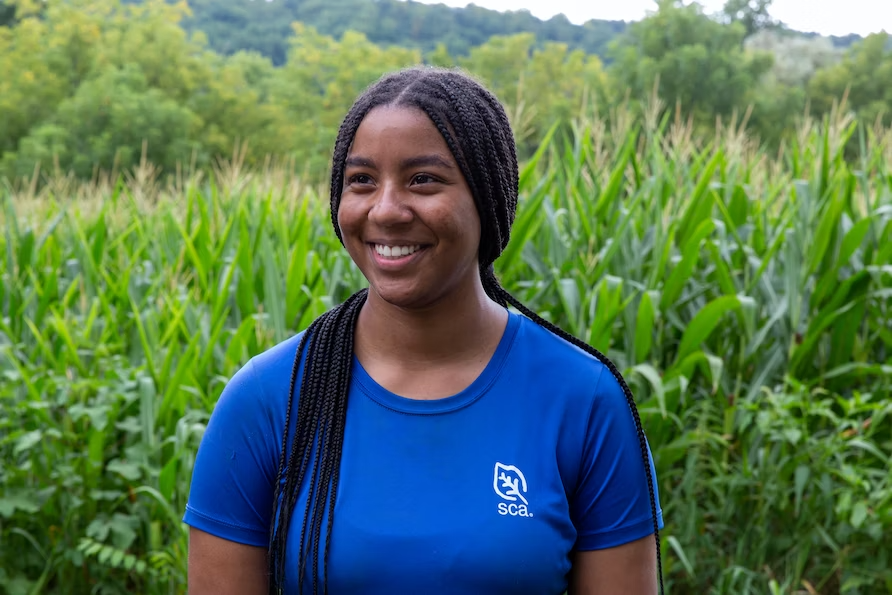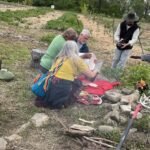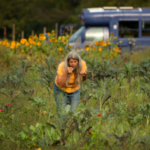News & Events
Upcoming Events
It seems we can’t find what you’re looking for.
NEWS & Media Coverage
Puhwem Corn Planting Ceremony
March 12, 2023
On May 12, over 100 People gathered to plant the Puhwem Corn that Rob Flory of Howell Living History Farm donated to the Turtle Clan. For the first time in many years, Puhwen corn returned to North Jersey.

History is told by the victor. This includes the history of the Native Peoples of the United States, their interactions with European colonizers, and the repercussions that continue in contemporary society. Through partnership and various initiatives the New Jersey Highlands Coalition (NJHC) is working to uplift the voices of the Ramapough Lunaape, the original protectors of this beautiful land we call the Highlands.
It goes almost without saying – but I’ll say it anyway – that all the land in New Jersey once belonged to the Indigenous people who lived here for millennia before European colonization. After 400 years of wars, treaties, forced removals and migrations, and unfair government policies, little land in this state remains under Native American control.
That’s why a Sept. 15 “rematriation” ceremony in Quinton Township, Salem County, was such an extraordinary and happy event. The ancient Cohanzick people, part of the Nanticoke Lenni-Lenape Nation, were reunited with a piece of Mother Earth where their ancestors once lived.
You may also find Chief Vincent Mann, Turtle Clan Chief of the Ramapough Luunape Nation along the banks of the river. Mann is at the forefront of New Jersey’s environmental justice movement and operates a nonprofit farm used for both sustenance and to recover the Ramapough Luunape’s cultural farming practices. Seemingly with more than 24 hours in a day, Mann has also been instrumental in restoring and preserving the Musconetcong Wild and Scenic River and his tribe’s ancestral land surrounding the river.
September 30, 2022
The New Jersey Council for the Humanities (NJCH) has announced the recipient of the inaugural Stanley N. Katz Prize for Excellence in Public Humanities, as well as two honorable mentions.“The Ramapough and the Ringwood Mines Superfund Site – History, Culture, Education, and Environmental Justice,” was awarded the top prize at NJCH’s 50th Anniversary Gala on September 29. The multimedia project, headed by Anita Bakshi of the Rutgers University Department of Landscape Architecture, promotes environmental justice advocacy and curriculum development on Native American history and contemporary Indigenous land relations and was co-created with the Ramapough Lunaape Nation Turtle Clan.
FARM HELPS HEAL NEW JERSEY NATIVE AMERICAN COMMUNITY
November 16, 2021
On paper, the Munsee Three Sisters Medicinal Farm in Sussex County looks like a start-up business, but at its heart, it's a charity with the goal of feeding, healing and sustaining members of the Turtle Clan of the Ramapough Lenape Nation. Munsee Three Sisters is one of several new endeavors supported by the Foodshed Alliance's affordable farmland leasing program on preserved land, known as the Sustainable Agriculture Enterprise (SAgE). "The farm is there because it's needed," said Michaeline Picaro, who co-founded it with the clan's chief, Vincent Mann. "Our community needs to be a caring community, centered around healthy food and healing. This is our life, our vision."

STAYING MEANS LEAVING
September 12, 2021
Years after the piecemeal cleanup of toxic paint sludge dumped by a Ford auto plant, hazardous chemicals still remain in the ground and threaten the water supply. The area's contamination is just one iteration of the dispossession and alienation of Indigenous people from their native lands, ongoing since European settlement of the Americas. Today, Native American communities live near more than half of the highly contaminated Superfund sites listed across the country; over 600,000 live near nuclear test sites, uranium mines, power plants and dumpsites for toxic waste.














